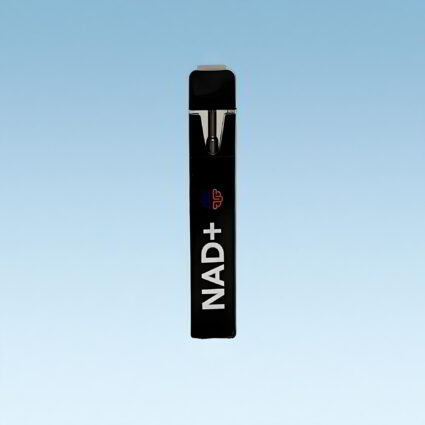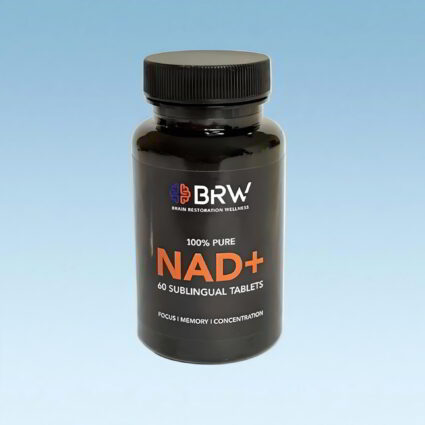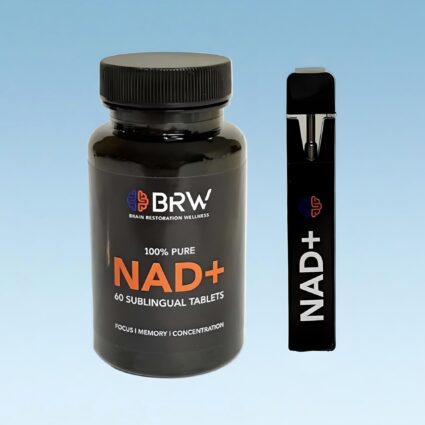NAD therapy is gaining traction as an effective tool for managing anxiety, and it’s becoming increasingly popular among those looking for alternative treatments. People are drawn to its potential to restore balance in the body at a cellular level, which could significantly reduce anxiety symptoms. This therapy focuses on replenishing Nicotinamide Adenine Dinucleotide (NAD) in the body, a coenzyme that plays a critical role in energy production and overall cellular health. By improving the function of cells, NAD therapy could be a game-changer for those struggling with anxiety.
Understanding NAD Therapy and Its Role in Anxiety Management
NAD therapy is not a one-size-fits-all solution, but it offers promising results, especially for individuals who haven’t found success with traditional treatments. For example, consider someone who has tried multiple medications and therapies with limited success, only to discover that NAD therapy provides noticeable improvements. It’s experiences like these that are making NAD therapy a compelling option for anxiety management.
- NAD (Nicotinamide Adenine Dinucleotide) is essential for energy production in cells.
- It helps repair damaged DNA and supports healthy brain function.
- Many who try NAD therapy report reduced anxiety symptoms within weeks.
NAD Therapy Benefits for Anxiety
NAD therapy’s primary appeal lies in its ability to reduce anxiety by addressing the root causes at the cellular level. Unlike medications that often mask symptoms, NAD therapy works by replenishing the body’s NAD levels, which can diminish with age, stress, or illness. This replenishment has been shown to improve mental clarity, enhance mood, and reduce stress, all of which contribute to alleviating anxiety.
- Studies suggest NAD therapy can lead to improved mood and mental clarity.
- Regular NAD therapy sessions may reduce the frequency and intensity of anxiety attacks.
- Users report feeling more balanced and less overwhelmed after NAD therapy.
NAD Therapy Versus Traditional Anxiety Treatments
Comparing NAD therapy to traditional anxiety treatments like antidepressants and psychotherapy reveals some distinct advantages. Traditional methods often focus on managing symptoms rather than addressing underlying causes. NAD therapy, on the other hand, works at a deeper level by restoring cellular function. This approach can be particularly beneficial for those who have not responded well to medications or are seeking a more natural alternative.
- Traditional medications often come with side effects such as drowsiness and weight gain.
- NAD therapy may provide relief without the need for long-term medication.
- Many find that NAD therapy complements other treatments like therapy and lifestyle changes.

How NAD Therapy Works to Manage Anxiety
NAD therapy involves administering the coenzyme intravenously, allowing it to be absorbed directly into the bloodstream. This method ensures that NAD is delivered efficiently to cells throughout the body, where it can begin repairing and rejuvenating them. The therapy’s impact on the brain is particularly noteworthy, as it helps rebalance neurotransmitters that regulate mood and stress responses.
- Intravenous administration allows for maximum absorption of NAD.
- The therapy promotes healthier brain function, which can reduce anxiety symptoms.
- NAD therapy may also improve sleep, which is often disrupted in those with anxiety.
Who Can Benefit from NAD Therapy
NAD therapy is not limited to any specific group, but it can be especially beneficial for those experiencing anxiety due to chronic stress, age-related decline in NAD levels, or those seeking an alternative to conventional treatments. Individuals who have struggled with long-term anxiety or have concerns about the side effects of traditional medications may find NAD therapy to be a viable option.
- Those with anxiety related to chronic stress may see significant benefits.
- NAD therapy is a good option for those concerned about the side effects of medication.
- It’s also beneficial for individuals experiencing age-related declines in NAD levels.
Potential Side Effects of NAD Therapy
While NAD therapy is generally considered safe, it’s important to be aware of potential side effects. Most people tolerate the treatment well, but some may experience mild symptoms like nausea, headaches, or fatigue during or after the infusion. It’s essential to discuss any concerns with a healthcare provider to ensure that NAD therapy is the right choice for managing anxiety.
- Mild side effects may include nausea, headaches, and fatigue.
- Most side effects are temporary and subside shortly after treatment.
- Always consult with a healthcare provider before starting NAD therapy.
Combining NAD with Other Treatments
NAD therapy can be even more effective when combined with other anxiety treatments. For instance, integrating NAD therapy with cognitive-behavioral therapy (CBT) or mindfulness practices may provide a more comprehensive approach to managing anxiety. Additionally, lifestyle changes such as improved diet, regular exercise, and adequate sleep can enhance the benefits of NAD therapy.
- NAD therapy can be combined with cognitive-behavioral therapy for enhanced results.
- Mindfulness practices can complement NAD therapy in managing anxiety.
- Lifestyle changes like exercise and diet can further support anxiety reduction.

Final Thoughts on NAD Therapy and Anxiety Management
NAD therapy offers a promising new approach to managing anxiety, particularly for those who have not found relief through traditional methods. By replenishing the body’s NAD levels, this therapy addresses anxiety at its core, providing a natural alternative that can be more sustainable in the long term. While NAD therapy may not be a cure-all, its potential to improve mental health and reduce anxiety is well worth considering. Whether used alone or in combination with other treatments, NAD therapy could be a valuable tool in the ongoing battle against anxiety.
Key Takeaways NAD Therapy and Anxiety
- NAD therapy works at the cellular level to reduce anxiety by replenishing essential coenzymes.
- Compared to traditional treatments, NAD therapy offers a more natural approach with fewer side effects.
- Combining NAD therapy with other treatments and lifestyle changes can lead to better overall outcomes.
Frequently Asked Questions about NAD Therapy and Anxiety
- What is NAD therapy?
- NAD therapy involves intravenous administration of Nicotinamide Adenine Dinucleotide (NAD), a coenzyme that plays a critical role in cellular energy production and overall health. It’s used to support mental health and manage anxiety.
- How quickly can I expect to see results from NAD therapy?
- Results vary from person to person, but many people report feeling more balanced and experiencing reduced anxiety within a few weeks of starting NAD therapy.
- Are there any risks associated with NAD therapy?
- While NAD therapy is generally safe, some people may experience mild side effects like nausea or headaches. It’s essential to discuss any potential risks with a healthcare provider.
- Can NAD therapy be combined with other anxiety treatments?
- Yes, NAD therapy can be combined with other treatments like cognitive-behavioral therapy or mindfulness practices for enhanced results.
- Who should consider NAD therapy for anxiety?
- NAD therapy is suitable for anyone experiencing anxiety, especially those who haven’t found success with traditional treatments or who are looking for a more natural alternative.














